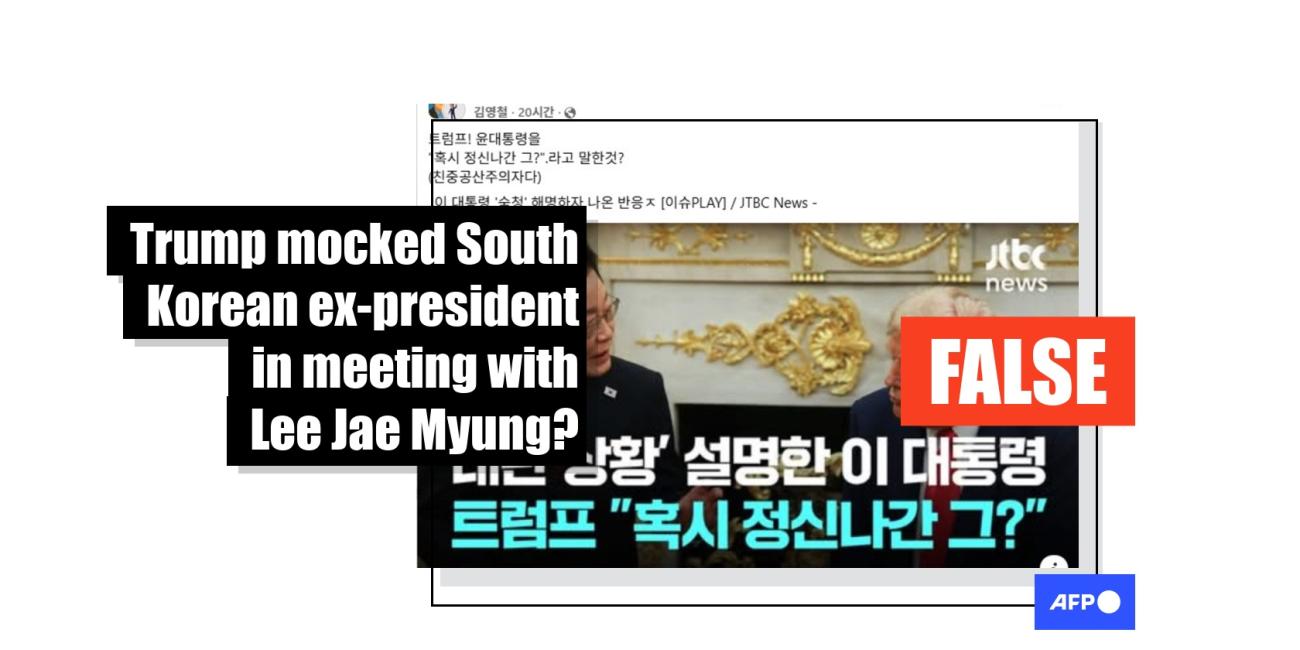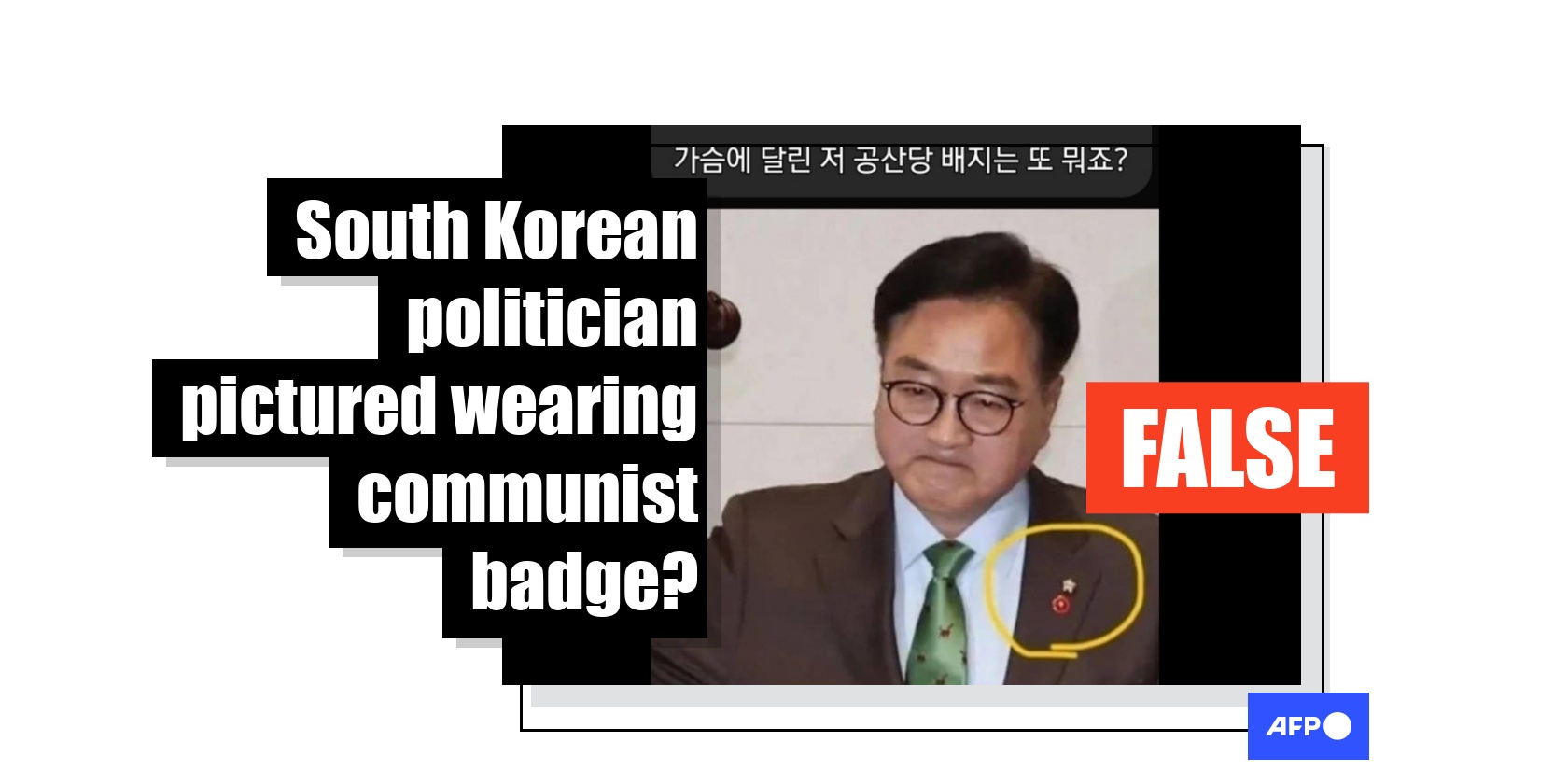
Photo shows S.Korea parliament speaker donning memorial pin, not Chinese ruling party symbol
- Published on February 25, 2025 at 08:26
- Updated on March 31, 2025 at 03:34
- 3 min read
- By Hailey JO, AFP South Korea
"Speaker Woo Won-shik showed up at the National Assembly like this after meeting with China's Xi Jinping," reads the Korean-language caption to the photo shared on Threads on February 18.
It shows Woo -- who met with Chinese President Xi Jinping weeks earlier -- donning a gold-plated pin with the seal of the National Assembly and a red badge (archived here and here).
"What's that Communist Party pin on his chest?" the caption adds.
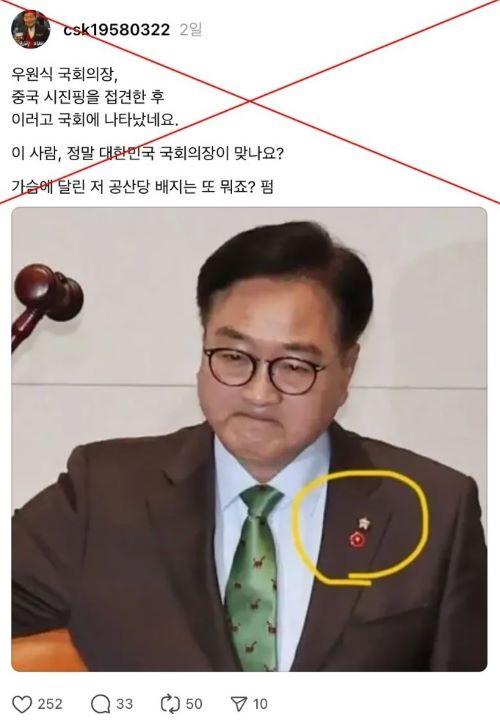
Similar posts ricocheted on Threads, X, Naver Blog and Naver Cafe, echoing unsubstantiated rumours of communist infiltration.
President Yoon, impeached by parliament for his short-lived martial law, had defended his suspension of civilian rule by claiming communist forces had compromised South Korea's institutions (archived link).
The 64-year-old has been behind bars on charges of insurrection, for which he could be sentenced to life in prison or even face the death penalty. A verdict on his impeachment trial is widely expected in mid-March.
Yoon had also accused unidentified Chinese individuals of flying a drone to photograph Seoul's spy agency and military facilities.
The rhetoric had sparked a deluge of misinformation targeting the judiciary, police and opposition figures.
Comments to Woo's circulating photo indicate many social media users believed he was wearing a Chinese communist party pin.
"What is he trying to gain by leaning towards China!" one wrote. Another said: "China's dog."
Jeju uprising
A reverse image search on Google found the original photo published in a Yonhap News Agency report on December 14, 2024 (archived link).
It shows Woo announcing the passage of the impeachment vote against Yoon at the National Assembly, according to the picture's caption.
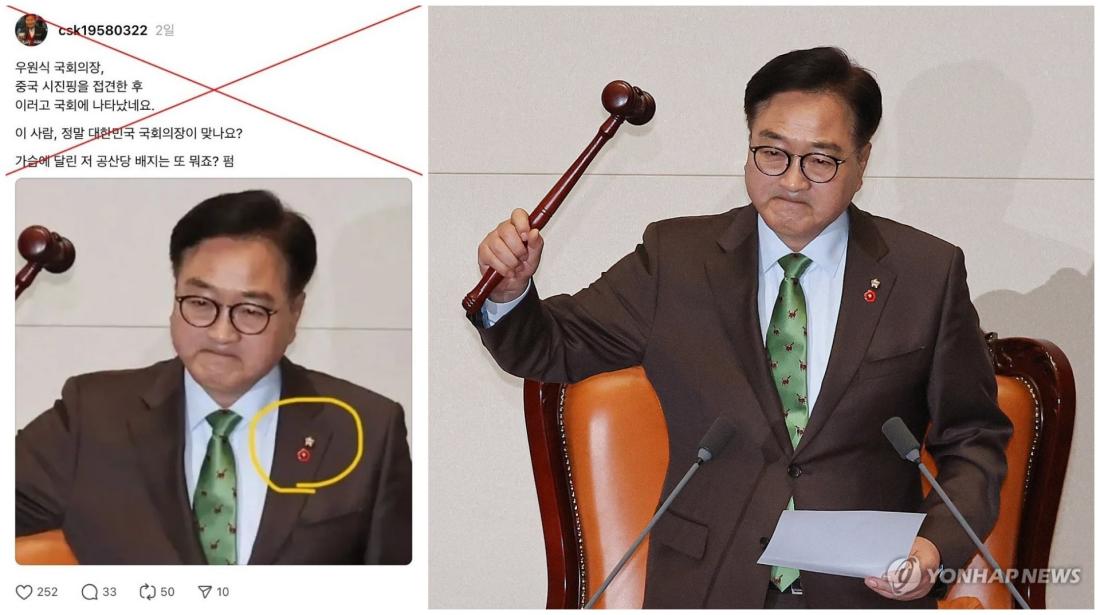
An analysis of the higher-quality photo from Yonhap found the pin matches the badge that the Jeju 4.3 Peace Foundation created to mark the 70th anniversary of the Jeju uprising (archived here and here).
The foundation's website states the badge, shaped like the flower of the camellia plant, symbolises the victims of the massacres (archived link).
On April 3, 1948, members of the communist Workers' Party of Southern Korea -- an ally of the organisation that still rules North Korea -- launched an armed uprising on the southern island of Jeju (archived link).
The revolt was quickly put down, but sporadic clashes continued, with more than 10,000 civilians killed by South Korean security forces over the next six years.
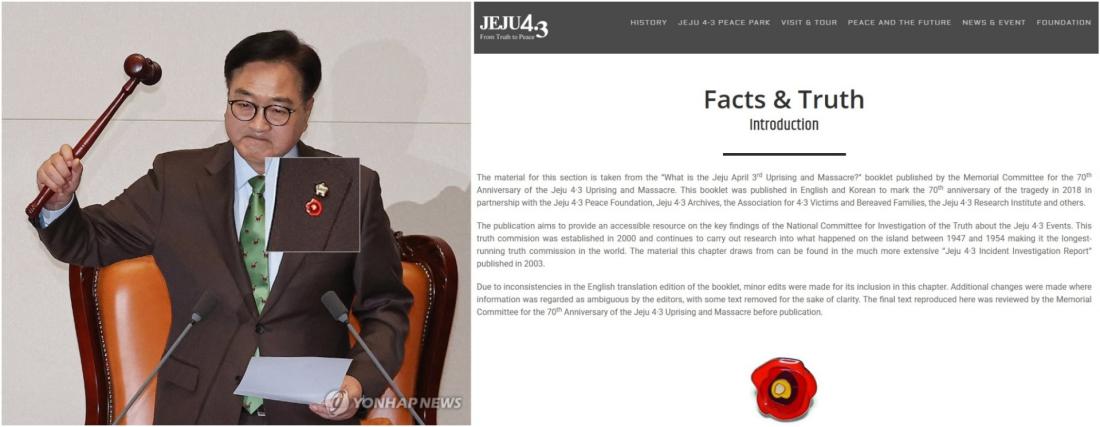
Democratic Party lawmaker Wi Seong-gon, who represents a constituency in Jeju, told AFP on February 25 that Woo wore the camellia-shaped pin during the impeachment vote to "convey a message that the April 3 incident that triggered the country's first martial law declaration was, like the recent insurrection, state violence" (archived link).
Multiple photos on AFP's archives show Woo donned the badge on other occasions in December 2024 and May 2024.
He also wore the pin when he attended a Democratic Party event held at the parliament, a picture in a report from local media Newsis shows (archived link).
Updated to add metadataMarch 31, 2025 Updated to add metadata
Copyright © AFP 2017-2026. Any commercial use of this content requires a subscription. Click here to find out more.
Is there content that you would like AFP to fact-check? Get in touch.
Contact us


